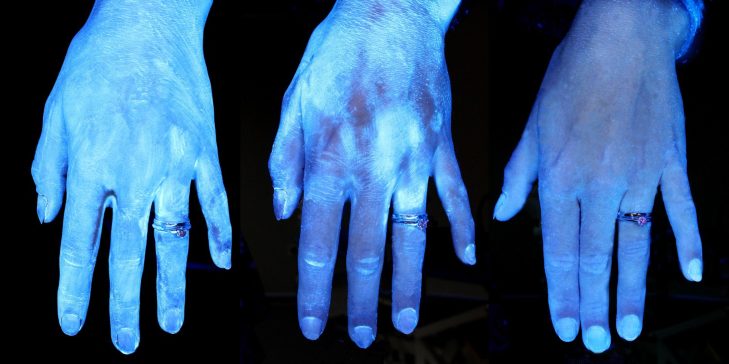Thursday night, at 11:00 p.m., Michigan Governor Gretchen Whitmer ordered the closing of all K-12 public schools in the state, for at least three weeks, beginning on Monday. As of two hours ago, twelve states and numerous large urban districts have ordered shutdowns.
Good for them. I know that without COVID-19 testing, we’re flying blind, and the effects of school shutdowns may be negligible. But taking action—and responsibility—is what leaders do.
I was asleep and didn’t learn about the school shutdown until Friday morning. Newscasters, parents and community leaders were all weighing in on how this would impact our daily lives. Teachers, on the other hand, were plotting to get to school early enough to get to the copy machine before the paper and toner ran out.
It’s not that teachers were caught by surprise. On-line chatter over the past month has been all about Will Technology Save Us? (no) and Is it Better for Kids to be at Home or School? Teachers are pragmatists. We have to be.
But this is another instance of teachers being foot soldiers, this time in a desperate war being directed by hideously incompetent generals, bent on hiding the terrible news of early defeats. Teachers are like those firefighters in Kirkland, Washington who came to transport extremely ill nursing home residents to the hospital, without gloves and masks. Just doing our jobs, just following directions.
Thank you to the hundreds of thousands of teachers who organized take-home packets and figured out how to get coursework online, even if they didn’t have a clue about how to do it before last week. And thank you to those who pointed out, with considerable asperity, how incredibly inequitable virtual instruction will be, but went ahead and made plans to do it anyway. Thanks to all who sent home food or arranged for food pickup—or even made a single call to a single household, to make sure an adult was home.
Nobody knows how to do this well. Nobody. But schools and teachers are still trying.
Keeping a functional learning community together is job #1. Meaning: every child, K-12, who is out of school involuntarily, knows for sure that the adults who have been his/her teachers, playground supervisors or joke-around buddies in the hallway, still care. Staying connected and checking in matter much more than reviewing fractions or watching a dissection video.
This may sound really wimpy and imprecise and touchy-feely to reformers and learning measurement types. And it doesn’t mean that teachers should abandon all attempts to build skills or (for lack of a better phrase) deliver content. Only this: the most important skills a child needs right now are empathy, curiosity and self-direction, kindness and civic engagement.
A child—either kindergartener or jaded teenager—who can discern truth from lies, identify gaslighting, find engaging and worthwhile things to read or watch, and be willing to help his/her family or community at an appropriate level will be learning plenty in the new few weeks.
The old ‘guide on the side’ idea applies here, in spades—teachers who have contact with students need not put on their lab coats and shoot dramatic videos. What they can do is help kids unleash and pursue their own discipline-based interests. They can stay in touch. They can listen.
Teachers have been describing their struggles and fears—whether to prepare for time away or push to get their state or district to close, NOW—eloquently. They are wondering whether they will see their students again, and when. One teacher described yesterday as ‘surreal.’ There is lots of black humor, and also lots of tears.
They are wondering if this global pandemic will be a turning point in our national understanding of how we are—and will forever be—global citizens. Will this experience finally bring the United States into line with other first-world countries in strengthening the safety net and providing universal health care? Teachers—first responders, in so many ways– want to know.
From a teacher in New York City (who believes she must remain anonymous):
Many teachers and staff feel like guinea pigs and disposable right now during a global pandemic because our society didn’t have protections and a safety net for young people in poverty, in this failed healthcare system. We teachers know this every day as we go teach and do our jobs and serve young people, which I love doing and which has been my calling since I was six. Teachers do everything, and this is yet another case where everything we do isn’t enough, AND we are expected to carry the burden for a larger society that won’t carry the burden.
Stay safe. Stay in touch. Wash your hands, teachers. We see you.


Thank you again, Nancy.
For every single post.
LikeLiked by 1 person
[…] Once Again Teachers are First Responders […]
LikeLike